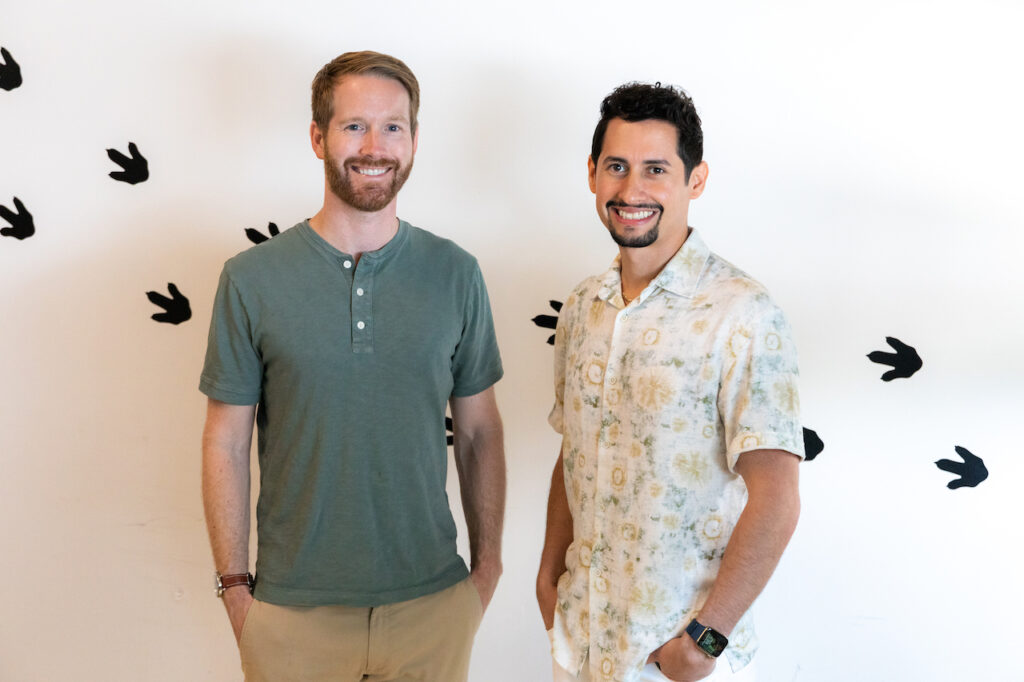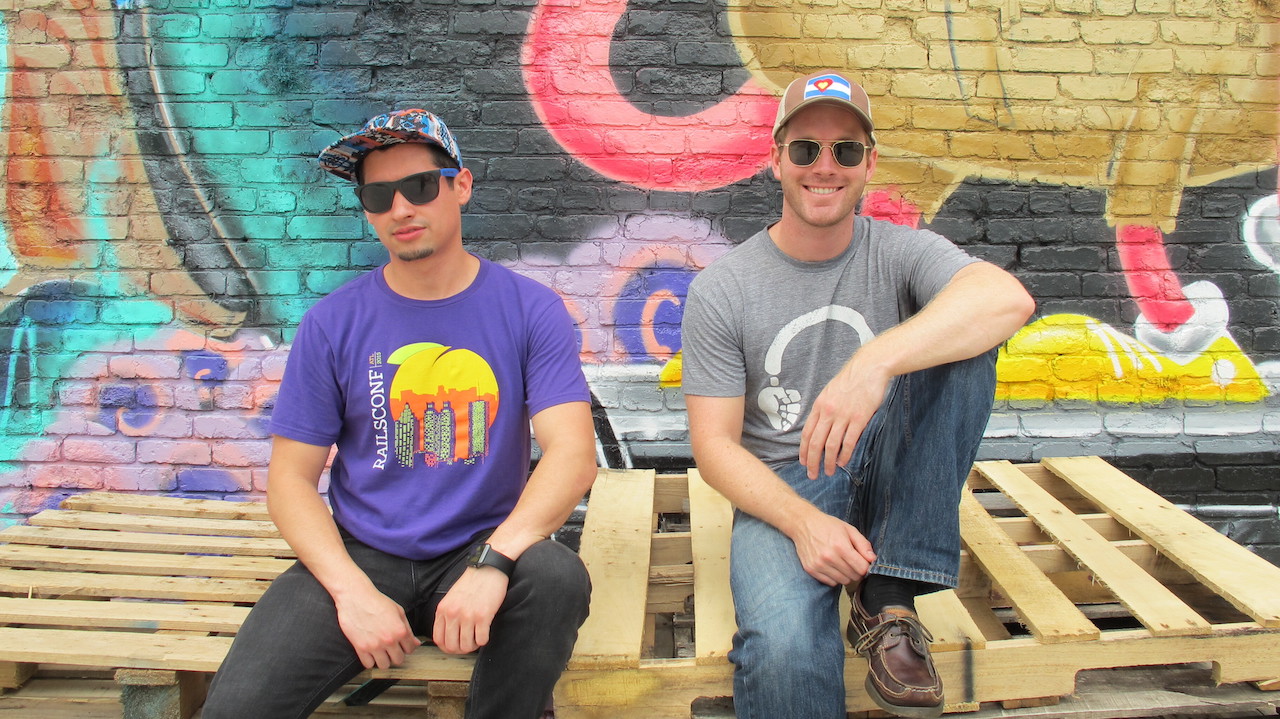In June 2016, when Tyrannosaurus Tech was born, we had one goal: build a profitable, purpose-driven company.
With only 9% of small businesses reaching $1 million or more in revenue, we knew the odds were against us. Through determination, we evolved into a seven-figure organization helping people bring their ideas to life while staying true to our values.
Now, as we celebrate seven years strong, we are sharing the most powerful lessons learned from scaling a service-based business to prevent you from repeating our mistakes.
Lesson #1: Be Militant About Cash Flow
Entrepreneurs, repeat after us: Cash flow is king.
The primary reason businesses fail is because of cash flow problems, meaning more companies suffocate than crash and burn. And it could’ve happened to us.
A few years into building our software development firm, we had major revenue rolling in, but weren’t sufficiently tuned into our spend vs. accounts receivables.
As the contracts got bigger, so did our expenses and client payment terms got longer. Getting paid on NET 90 as a small business is not easy! At the time, we were doing so well on paper that we didn’t realize how mismatched the timing of cash-in and cash-out was becoming. Fortunately, we were able to recalibrate and come through it relatively unscathed.
We learned it’s not only a matter of spending less than you bring in, the other critical factor is timing.
To head off potential money mishaps, here are 3 pieces of hard-won wisdom for you:
- Never assume anyone will pay you on time.
- Always anticipate a project will take twice as long and cost twice as much as expected.
- Make sure you understand your margins, overhead, and the revenue required to become stable.
You’ll thank us later.
Lesson #2: Good Owners Operate, Great Owners Delegate
If your goal is to create a multi-million dollar company, learn to delegate.
Hustling out of necessity is one thing, but it is your duty as an owner to outgrow low-value work ASAP.
Unfortunately, many of us underestimate this skill early on, resulting in founder’s who become absorbed in performing basic tasks and hinder the organization’s growth.
The first step to overcoming this hesitancy is to admit you have one. The next is to identify your apprehensions, which usually involve the fear of losing control or work not getting done correctly. We struggled with both aspects until the exhaustion from working for years without a without a real vacation forced us to change.
Through much trial and error, we learned the value of building a supportive team utilizing these best practices:
- Hire people who earn your trust
- Bring on individuals who share your values
- Develop processes they can use to tackle ongoing work and business needs
Lesson #3: Don’t Hire Until It Hurts
On the other end of the delegation spectrum are founders who are too eager to hire.
Whether they can’t wait to hand off their work or their egos are caught up in headcount the result is the same: bringing on full-time employees before it is sustainable. Another fundamental flaw we made was speeding through the candidate process and missing red flags.
Years ago, we hired an engineer who seemed great in every way, until he started working with us. Then, shortly after onboarding, toxic behavior began to emerge, such as being unwilling to compromise, talking down to teammates, and ignoring feedback. We had no choice but to let him go and restart our search, costing us time, money, and morale.
The experience taught us 5 non-negotiable rules for better hiring:
- Leverage experienced contractors, first.
- Make sure they’re domain experts, not generalists learning on the fly.
- Only hire against client commitments. This give you the flexibility to scale up or down, and mitigate cash flow issues.
- Try before you buy. Use contracting as a way of vetting potential hires.
- Maintain a healthy ratio of employees to contractors. It is easier and less heart-wrenching to wrap up a contract than to lay someone off.
Lesson #4: Structure Your Services For Long-Term Customer Value
Hot Take: You can build a profitable AND scalable service-based business.
Contrary to what the tech industry says, building a SaaS platform is not the only way to generate significant returns. We are living proof. However, it does require more nuanced thinking, especially when it comes to your service offerings.
Selling “one and done” projects traps you in a cycle of feast or famine, in which you’re either overwhelmed by client work or desperately searching for your next project.
The secret is to break free from short-term engagements.
How? By finding opportunities to create long-term value for clients within your scope of services.
Here’s a few examples:
- If a client needs a mobile app → Offer on-going monthly support to maintain and scale their platform.
- If a client wants to add ChatGPT to their technology → Begin offering a recurring service to keep up with the rapidly changing AI industry.
When you’re not perpetually stressed about covering next month’s bills, you’re able to provide better quality service.
It’s a win, win.
Lesson #5: ALWAYS Choose Your Team Over Clients
At the height of the pandemic, the unthinkable happened when our largest client began borderline-bullying our team members.
Normally, we wouldn’t tolerate this behavior, but with the uncertainty around COVID, we were afraid to lose their business. So, regrettably, we put up with it and you might guess what happened next. Despite our best efforts to mediate the situation, the client became increasingly rude and demeaning. Behind the scenes, employees felt so demoralized, they contemplated quitting.
It was a gut punch, but it gets worse. This awful client ended up firing us.
The night before Richard’s pregnant wife was to be induced for labor, the client called to drop the bad news. We feared this represented a devastating blow, but in hindsight, it was the best thing that could have happened and we learned no account was worth risking good team members.
In the end, we quickly recouped the revenue from new accounts and never looked back.

Lesson #6: Measure Twice, Cut Once
When we first launched T-Rex Tech, we didn’t fully understand the golden rule of software development, “measure twice, cut once.”
This oversight led to underestimating project costs and timelines, which led to ballooning scope creep, missed requirements, and derailed projects…and angry clients.
Fortunately, these tough times taught us that doing in-depth discovery, requirements gathering, and UX/UI design is invaluable. Building the wrong thing is the most expensive mistake you can make.
That’s why we’re meticulous about planning before writing a single line of code. Sure, some folks may feel this work is tedious or not moving fast enough, but always remember: it is easier and cheaper to iterate in design than in code.

Lesson #7: Plan To Commit For 5-10 Years
Everyone loves an overnight success story.
The problem is, it is just a story. Still, every week someone approaches us with a proposition to build some new AI-powered platform expecting to 10x their money in 6 months. Don’t get us wrong, we appreciate innovative thinking, but too many new business owners are secretly planning on “hitting the lottery,” instead of doing the work.
To win in business you’ve gotta play the long game.
Internalizing this truth is easier said than done, as we often felt discouraged for not “making it” yet.
Then we realized if we took a step back and looked at how far we’d come in the last few years, we were undeniably succeeding. We also learned the impact of extrapolating historical growth.
For example: If we keep growing at this rate, where will we be in another 5 years?
Very quickly, the numbers will add up. You don’t have to grow 200% year over year to achieve crazy success, you just have to grow at a steady clip and stick with it.
This is where big success stories are born.

Now, It’s Your Turn
Building a service-based business from the ground up is no easy feat, and there will always be challenges that come with it.
After all, to succeed as an entrepreneur requires more than just a great idea; you need grit, humility, flexibility, and trust your efforts will pay off.
In the end, you will achieve great things.
Be sure to follow us on Linkedin and reach out if you need help making your tech aspirations into a reality.


